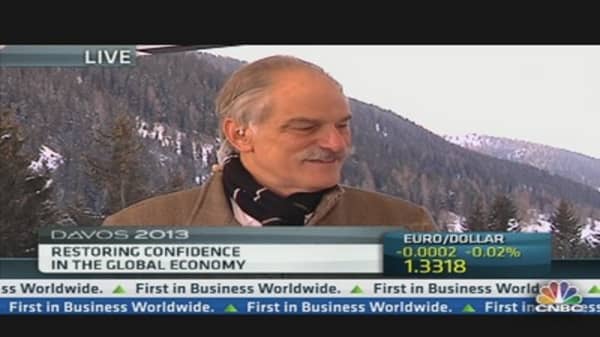Have you heard there's a war going on? A currency war, that is.
Talk of a currency war is everywhere. But Marc Chandler, chief currency strategist at Brown Brothers Harriman, is skeptical.
Yes, central banks in developed economies are cutting interest rates or delaying rate hikes, and yes, emerging market countries are objecting when their currencies appreciate. But it's all a natural outgrowth of floating exchange rates, Chandler said.
"Given the synchronized economic downturn in the high income countries, it is not surprising that monetary policy has become synchronized and that most officials want weaker currencies. And this is at loggerheads with the many of the leading emerging market currencies that are not willing to accept substantial currency appreciation," he wrote in a note to clients.
But even so, he continued, "despite a desire for weaker currencies, neither the Bank of Canada nor the Bank of England are about to intervene materially in the foreign exchange market, for example. And if some countries cut interest rates to offset their currencies' strength, well, that is how the adjustment process is supposed to work."





